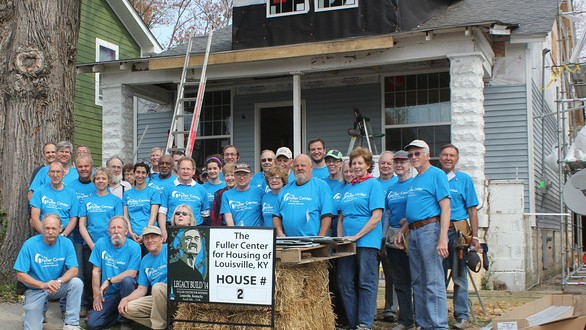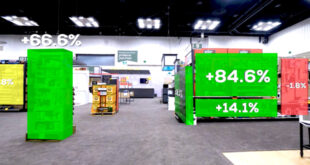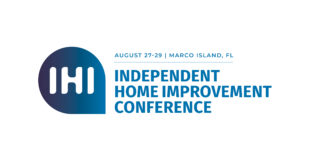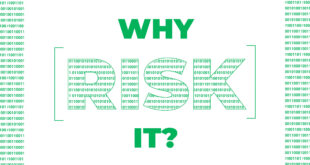From benefits such as brand exposure to less measurable returns such as providing morale boosts to staff, philanthropic efforts can benefit a business in a variety of ways.
In May, independent home improvement retailers joined together through the NRHA to partner with The Fuller Center for Housing. The goal was simple, yet extensive—to initiate an industry-wide effort to marshal resources and provide decent housing for families.
As more retailers are joining the efforts under the new partnership, we reached out to David Snell, president of the Fuller Center, who has spent much of his career bringing together small businesses and charities, to answer many of the questions retailers have regarding how they can get involved.
Below is the full interview with Snell from the July issue of Hardware Retailing.
Hardware Retailing (HR): You spent much of your career involved with philanthropic causes and have worked with businesses of all types and sizes. What is the importance of the relationship between small businesses and communities?
David Snell (DS): The tie between local businesses and charity is essential for both the longevity and economical success of communities. For example, I’ve worked with housing organizations for much of my career. Being a part of housing initiatives, our work, by definition, is local. Because of this, we look to the community to provide the resources, and local businesses are essential parts of the process. Local business owners understand the needs of the community and are best equipped to help meet them.
Besides the obvious benefits of helping others in need, working within the community helps garner higher visibility for retailers as community partners. In fact, the charities will typically display the business name and logo on campaign efforts. Plus, the intangible benefits of customers linking your business to charitable efforts can be priceless.
Additionally, many of these philanthropic partnerships will put businesses in front local decision-makers and open doors for new relationships.
One of the best parts of retailers working with community partners is that the community organizations will typically promote a retailer’s business like they would their own and expose a retailer’s business to wider networks of customers. Your success is their success.
HR: Can you talk about the direct benefits to a business and a community when a small business is committed to philanthropic causes?
DS: We live in a culture that has, for many years, promoted the idea that bigger is better, and the result has been the explosion of large, national retailers that primarily answer to distant shareholders.
In contrast, local businesses answer to the communities they’re in, so it’s especially important that they are helping make decisions about those communities and are seen as caring residents.
When businesses and communities partner together they become mutually beneficial. Participating in community efforts makes a retailer’s company more appealing to potential employees and current employees. Plus, working together as a team outside of the store can boost employee morale and encourage closer relationships among an operation’s staff. As we know, happier employees can increase overall productivity.
Finally, working with a community can expose a retailer and his employees to new processes or skills. After working on a job site, for example, an employee may come back with a new perspective or idea. This is particularly helpful for home improvement projects where newer, less-experienced employees can actually get hands-on experience.
HR: Many retailers say the hardest part of getting involved in community service activities is finding time to do so. What are the different ways retailers can get involved in their communities? What are some non-traditional ways?
DS: I understand that operating a small business is not a 40-hour-a-week undertaking, but we consistently find that the most significant participants in our work are those who seemingly don’t have the time for it.
For example, organizations that take part in local Fuller Center programs serve many functions ranging from financial counselors to homebuilders to mortgage lenders. The successful organizations learn how to parcel out all these responsibilities among their teams. There are many different ways to “get involved,” whether it’s through actual physical labor, donations or even organization efforts.
If a retailer finds organizational ways to integrate community service into what he’s already doing, charity typically doesn’t take large amounts of extra work while the benefits are huge.
HR: What are some of the biggest mistakes small businesses run into when getting involved with their communities or philanthropic causes?
DS: One of the biggest mistakes we see small businesses make is choosing the wrong causes to get involved with. People should get involved in things that they are passionate about. Start with what you know. Unless one of the principals in the business is a concert violinist getting involved with the local symphony might be a stretch. Since home improvement retailers are directly tied to all aspects of homebuilding, working with a homebuilding charity is clearly a good fit.
It’s one of the reasons The Fuller Center and NRHA joined together. We know retailers are passionate about homebuilding and repair already, and this partnership presents an ideal philanthropic partner for a home improvement retailer—we are, after all, in the same business.
HR: We’ve heard and seen community service events boost morale among employees at stores and improve overall store brand awareness. What other areas of a small business are improved by community involvement?
DS: There is a simple calculus of faith that says that those who bless others are blessed themselves. Everyone who gets involved in a Fuller Center project, whether it’s serving on the board or painting a porch, reports that they get more out of the experience than they put into it.
HR: Sometimes the red tape can become an obstacle for retailers wanting to donate time, money to charitable organizations. Do you have any advice to these retailers?
DS: The Fuller Center for Housing works overtime to eliminate red tape on our end. We believe that a deal only works when it’s good for both parties, so we strive to make working with us as straightforward and mutually beneficial as possible.
HR: Tell us a little about the new partnership between NRHA and Fuller and how you think this could help retailers around the country and in Canada?
DS: The partnership with NRHA is one of the most exciting developments to come our way. As a charitable organization we rely on the kindness and generosity of others and, like most nonprofits, spend a good deal of our time developing donor and partner relationships. Having the NRHA on our side opens so many doors and already, in its infancy, is proving a true blessing to our efforts.
HR: Why else do you think The Fuller Center is a good fit for small, independent retailers?
DS: The Fuller Center is a natural partner for independent retailers. We are a collaboration of locally run non-profits, which we call Covenant Partners. These partners are stand-alone, non-profit corporations. They raise their own funds, select the beneficiaries, and build or renovate houses, which are sold to families in need on terms they can afford, over time and with no interest charged or profit made.
Those funds then stay in the communities to help build and renovate more houses. We feel this model works because the beneficiary becomes part of the processes—it isn’t a handout, so self-respect is retained, and those in need, by their house payments, become donors in their own rights. This is a philosophy that’s very much in tune with that of independent retailers, who know the value of hard work. We share the mantle of ‘locally owned and operated’ and the philosophy of self-reliance.
HR: Can you tell us a little about how the Fuller Center interacts with retailers and some of the successful relationships that have been forged?
DS: Our relationships with retailers begin as practical partnerships, but they almost always turn into friendships. We know we can count on retailers to provide quality and service, and they know we are putting their products to good use. The partnerships are win-wins because we both want the other to succeed and flourish. We’ve had independent retailers step forward to be major sponsors of events such as our 2010 Millard Fuller Legacy Build in Indianapolis, or be ready to help when we’re a few boards short on a project.
HR: Do you have any final advice for retailers trying to become more involved in their communities and with charitable efforts?
DS: The first step is to make contact with the local Fuller Center covenant partner to find out who they are and how they work. While we’re always happy to receive donations this partnership is about much more than that. Hardware retailers have a wealth of information that can be helpful to our local groups as they plan their projects. Retailers typically have connections throughout the community, connections that can also be of great value to the covenant partner. A lot of people pass through the store each day, so having some information about the local work on hand would be of great help. One of our great challenges is getting the word out—we find that once people learn what we’re doing they like it. Helping with that simple task would be a great benefit. And, if there is no local covenant partner, the retailer can visit with his friends, church and civic association about forming one.
David Snell is the president of the Fuller Center for Housing, an ecumenical Christian ministry based in Americus, Georgia. The Fuller Center was founded in 2005 by Millard Fuller to continue his vision of eliminating poverty, a dream he pursued for 25 years through Habitat for Humanity. Snell, a founding board member of The Fuller Center, assumed the presidency of the organization upon Fuller’s death in 2009.
Following a career in the insurance business Snell became involved with Habitat for Humanity in 1999 when he was asked to help direct the 2000 Jimmy Carter Work Project in Tijuana, Mexico. This became a life-changing experience and he has spent the last twenty two years working in affordable housing, first on staff at Habitat for Humanity, later with a nonprofit he established on the Pine Ridge Indian Reservation.
In early 2005 Snell worked with Millard Fuller to establish what was to become The Fuller Center for Housing. As the organization began to prosper Snell went on staff as the Vice President of Programs and, in 2009, took over as president. In its short life the Fuller Center has seen remarkable growth and now has local organizations in 57 U.S. cities and 16 other countries. Recent initiatives include an earthquake recovery program in Haiti and the Save a House/Make a Home initiative that seeks to restore some of the millions of vacant houses across the country as homes for God’s people in need.
 Hardware Retailing The Industry's Source for Insights and Information
Hardware Retailing The Industry's Source for Insights and Information









